Ever wondered what information you’re not obligated to share with the police? Being stopped can leave you feeling pretty powerless, so know your rights and discover the questions you can legally decline to answer. Bear in mind that this may vary from state to state. Here are 18 surprising questions you can legally ignore during a traffic stop.
Where Are You Headed?

This question is often used to gauge suspicious activity, but you are not required to disclose your destination. The American Civil Liberties Union clearly states that “you do not have to answer any questions about where you are going.” You may politely decline or state that it’s personal information you prefer not to share.
Where Are You Coming From?

The same rights relate to the question, “Where are you coming from?” which is designed to gather information about your activities. You are within your rights to decline or provide a vague answer like “I was running errands.” Your whereabouts before the stop are generally not relevant to the traffic violation.
What Are You Doing in This Area?

You never know what or who they might be looking for, or if it is just a regular stop. If you don’t feel like answering this question, then don’t. If you wish, you can state that you were passing through or are visiting someone in the area, or avoid giving details about your specific activities unless directly related to the stop. Remember, remaining silent is your constitutional right.
Have You Been Drinking?
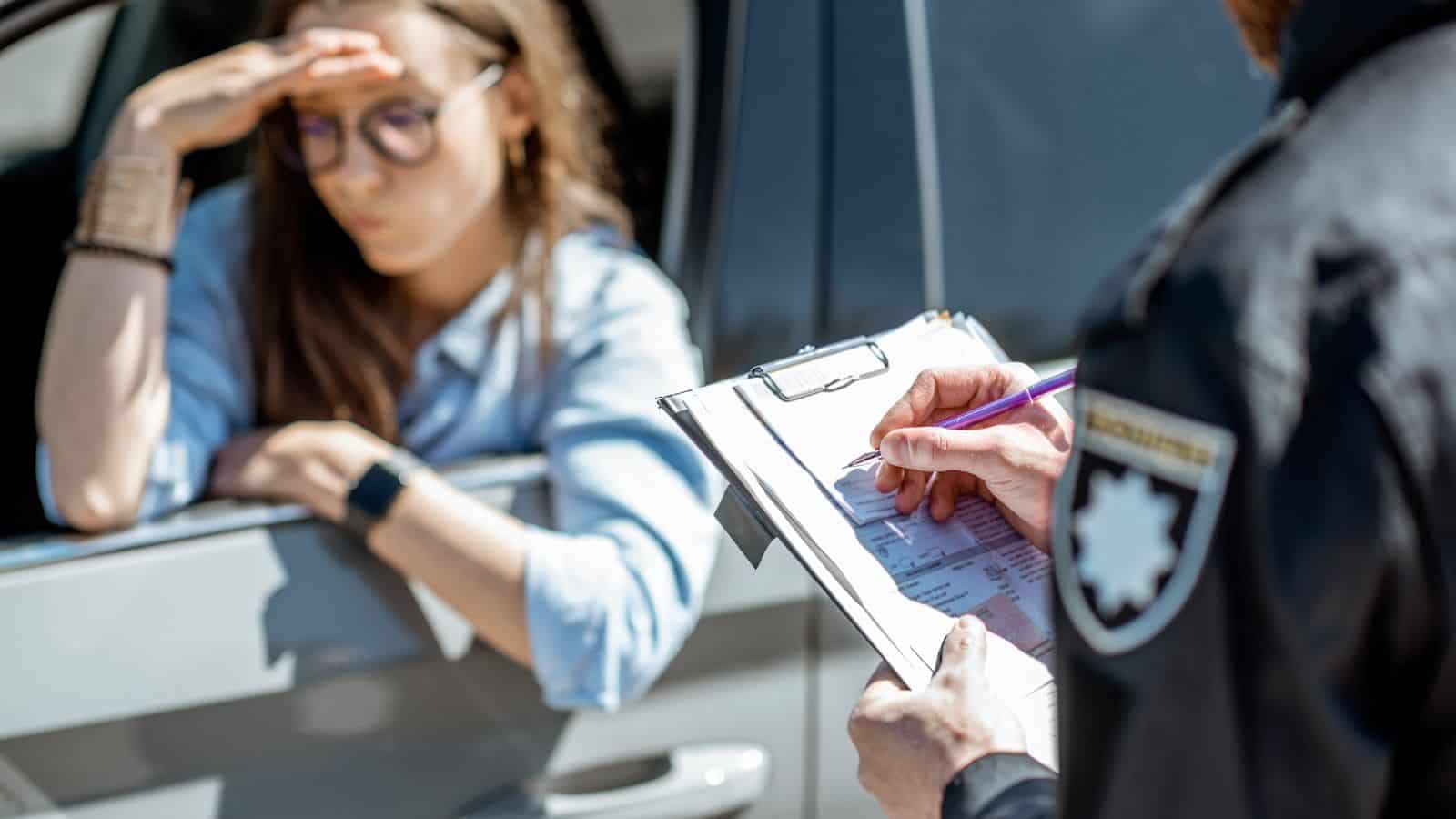
You might feel compelled to protest your innocence, but sometimes less is more, and unless you are showing signs of being under the influence, you still retain the right to remain silent and not incriminate yourself. If the officer suspects intoxication, they may conduct a field sobriety test. Attorney George F. Hildebrandt says, “Don’t be afraid to invoke your Fifth Amendment right.”
Can I Search Your Vehicle?

Unless the officer has probable cause or a warrant, you can refuse a vehicle search. If they insist, request a warrant before allowing any search to take place. You may politely decline and state that you do not consent to a search. If they insist, request a warrant before allowing any search to take place.
Do You Know Why I Pulled You Over?
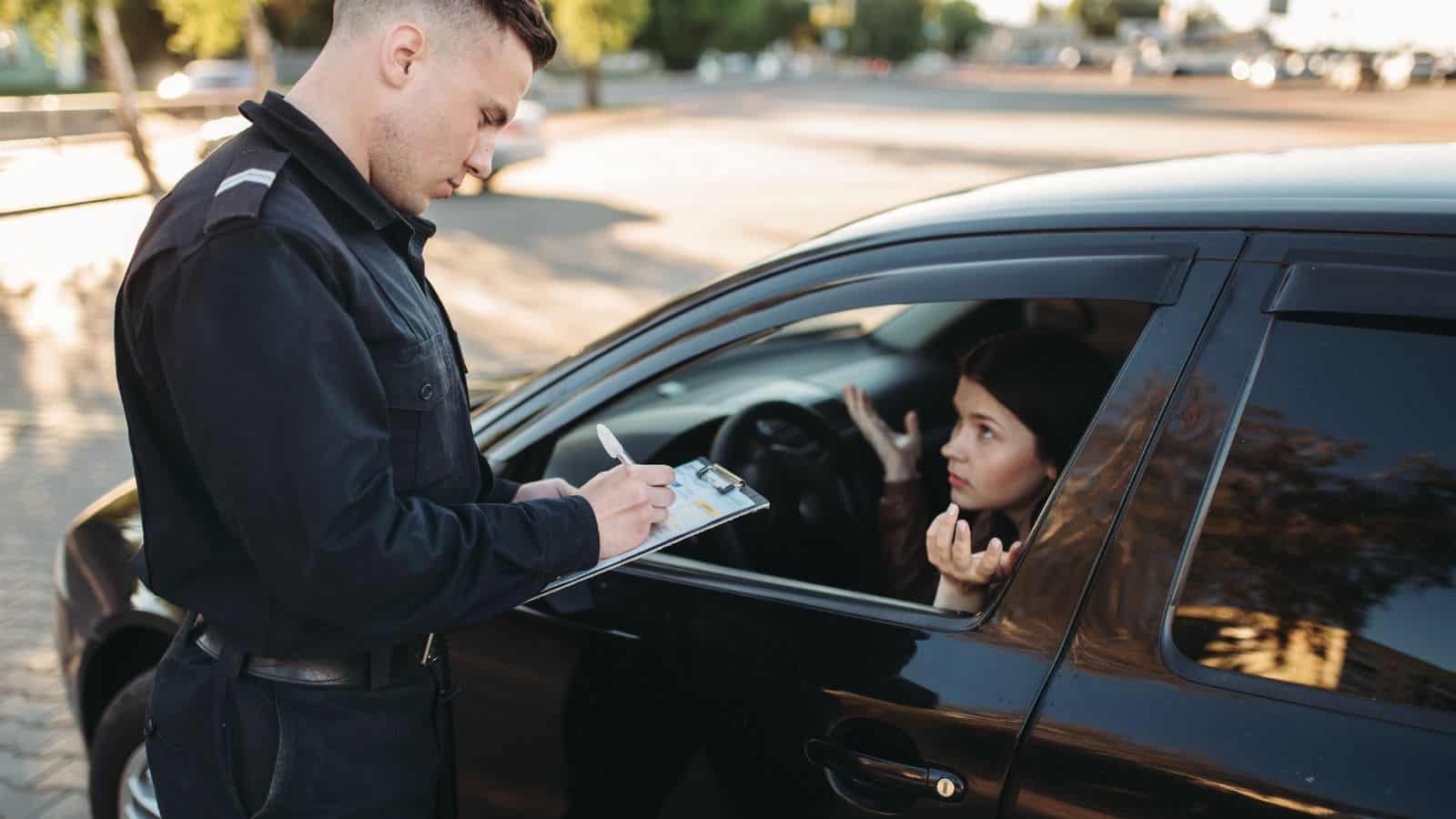
This is often used as a tactic to get you to admit to a violation. You can simply say, “No, officer, I do not” or completely ignore the question altogether. Let them inform you of the reason for the stop before you implement something that you might not have even done. Remember, it is easy to get flustered and say the wrong thing in these situations.
Do You Have Any Weapons in the Car?

Unless you are legally required to disclose this information, for example, as a concealed carry permit holder, you can opt to decline to answer. Traffic Tickets maintains that “the police need to have ‘founded suspicion’ in order to ask you if you are possessing any weapons in your car.” You have the option to decline to answer or state that you prefer not to answer and that it’s private information.
Are You Carrying Any Drugs?

Another question that’s designed to elicit an admission of guilt—but you do have the right to remain silent and not incriminate yourself. FindLaw describes how the Tenth Circuit proclaims that “questions regarding transportation of contraband, even if they occur concurrently with an officer’s performance of legitimate tasks during a routine traffic stop, are justified only if the officer has reasonable suspicion of illegal activity.”
Can I Look in Your Bag?

Your personal property is not open to be searched without your consent, without valid cause for suspicion, or without a warrant. Politely decline to answer and assert your right to an attorney if necessary. Similar to a vehicle search, you can refuse a search of your personal belongings. Politely decline and state that you do not consent to the search without either of these being provided.
Can I See Your Phone?

This question can seem particularly intrusive, as our phones contain a lot of private information, but you are not required to hand it over without a warrant. Messages can be perceived in the wrong way, so make sure that you don’t incriminate yourself for something you’re innocent of. If they insist, request a warrant before allowing them to access your phone.
Have You Ever Been Arrested?

Your criminal history is not relevant to the current stop. You are not legally obligated to declare your past on the side of the road and in front of whoever might overhear. You can decline to answer or state that you do not wish to discuss your past. Your criminal history should not be a factor in a routine traffic stop.
Where Were You Born?

If you do not feel comfortable providing this information, then you aren’t obliged to do so. Your place of birth is not relevant to a traffic violation. You can politely decline to answer or provide a general answer like “the United States.” You can choose to avoid giving specific details about your place of birth unless directly related to the stop.
What Is Your Occupation?
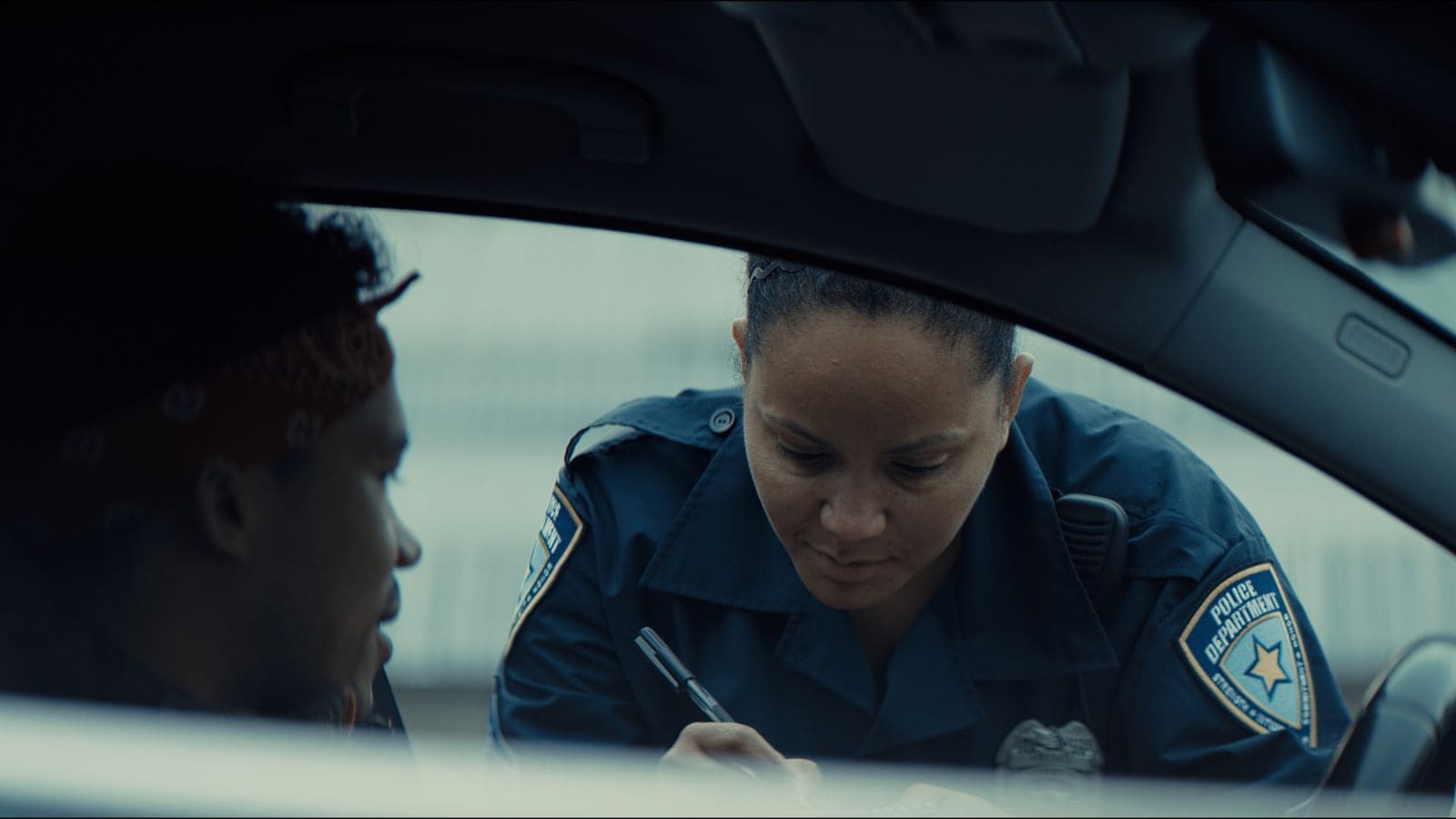
Seeing as your occupation is not relevant to a traffic violation, you can politely decline to answer or provide a vague answer like “I work in the service industry.” If you don’t feel comfortable disclosing this information, you don’t have to! Avoid giving specific details about your job unless they are directly related to the stop.
How Much Money Do You Make?

Again, this is highly sensitive information that you are not obligated to disclose! Details about your personal finances should not be asked and do not have to be answered. Your income should not be a factor in a routine traffic stop.
What Is Your Name?
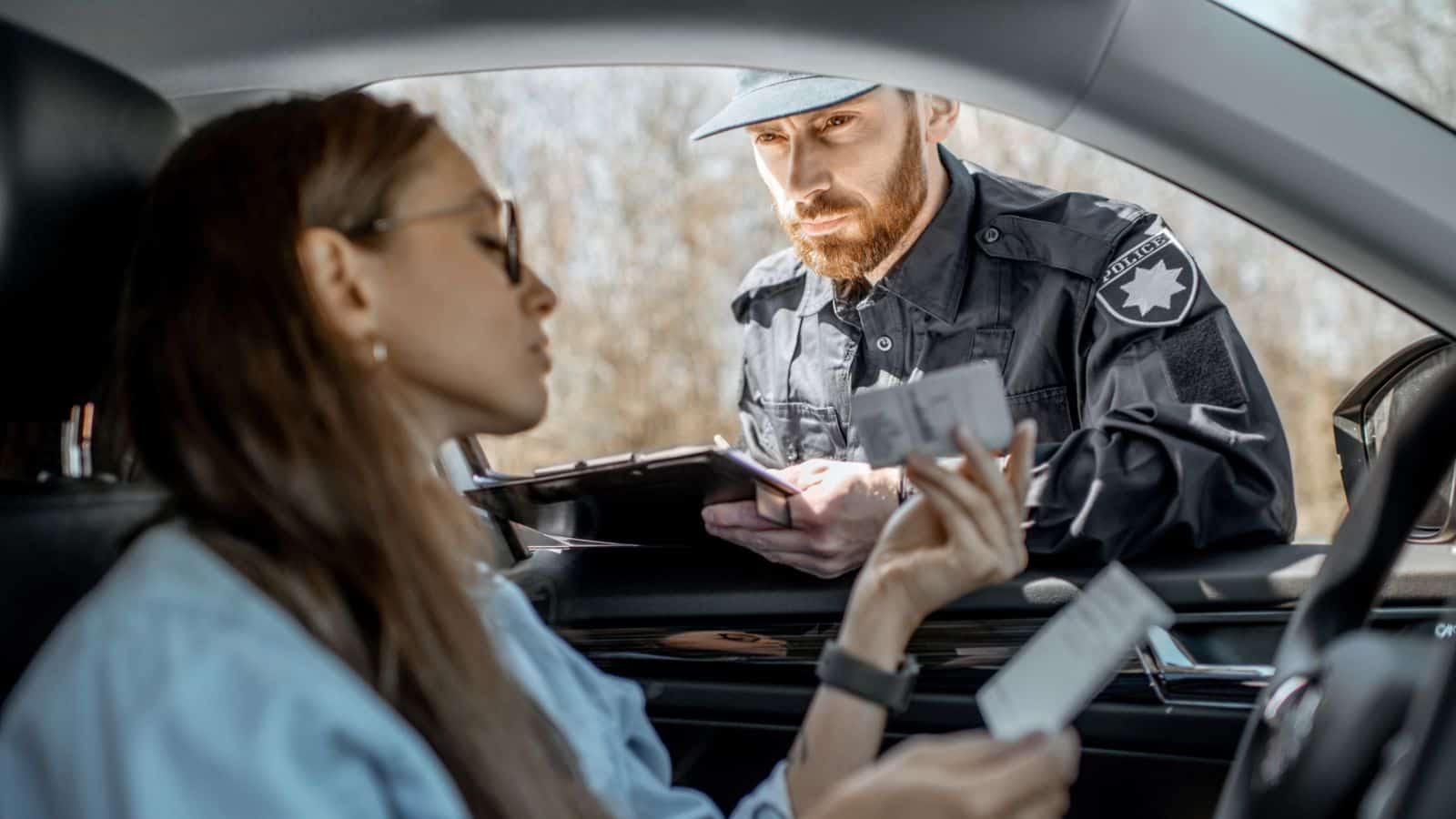
It might get you on your way quicker to reply politely to an officer and tell them your name. However, Rossen Law Firm clarifies that “you can refuse to answer… because you are not in formal custody at the time you are stopped for a roadside routine traffic stop, as ruled in Berkemer v. McCarty, 468 U.S. 420 (1984).”
Can I Speak to Your Passenger?
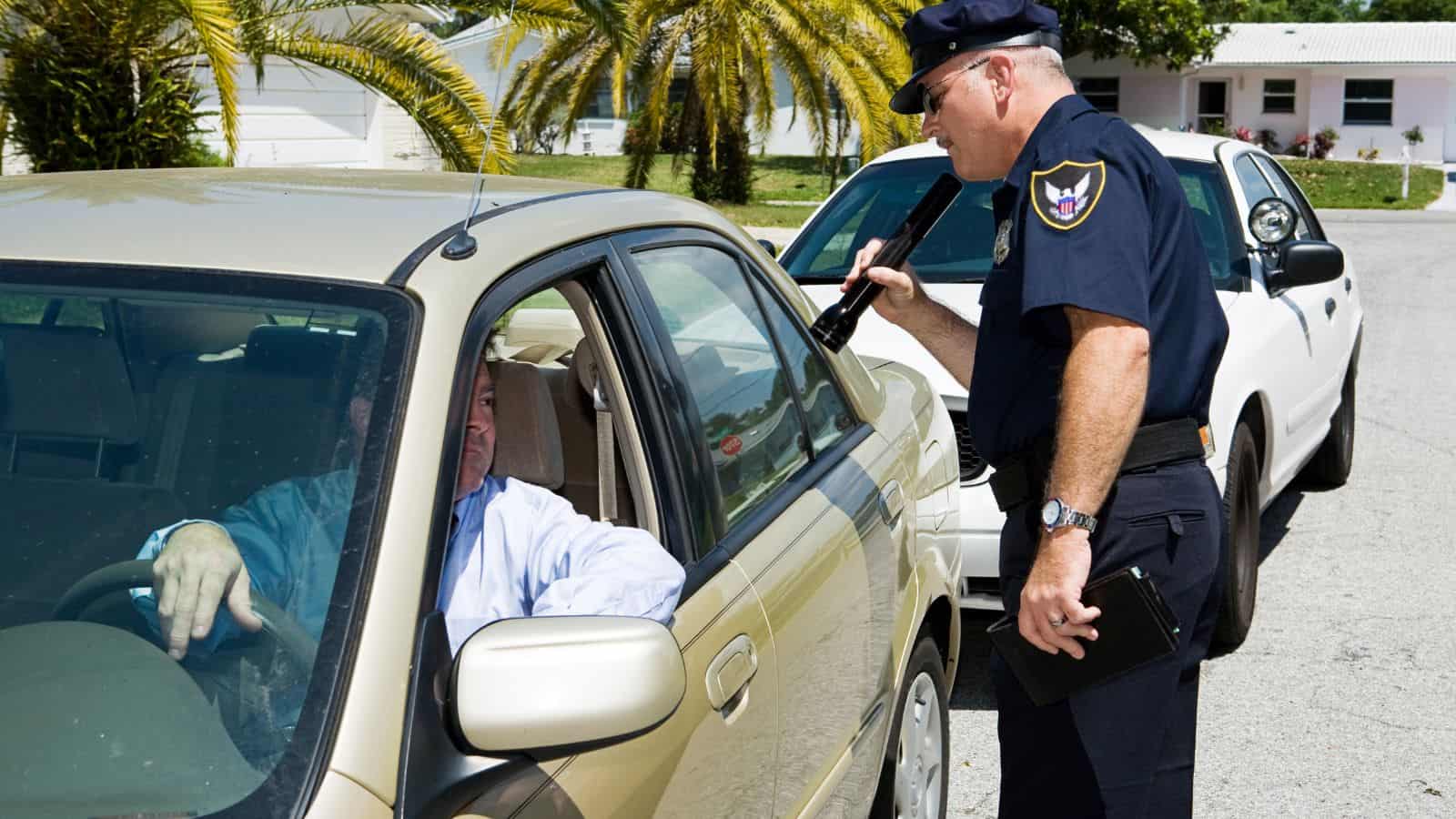
Your passenger has the same privilege to exercise their Miranda rights. Generally, the stop has to be reasonable, or anyone within the vehicle can challenge it under the Fourth Amendment. If officers persist in interrogating them, they may assert their right to an attorney, if necessary.
Are You a U.S. Citizen?

Unless you are under custody, you have the right to remain silent and do not have to discuss your immigration or citizenship status with the police. Civilians often feel like they might be subject to discrimination based on how they answer. So, if you’d rather not say, don’t!
